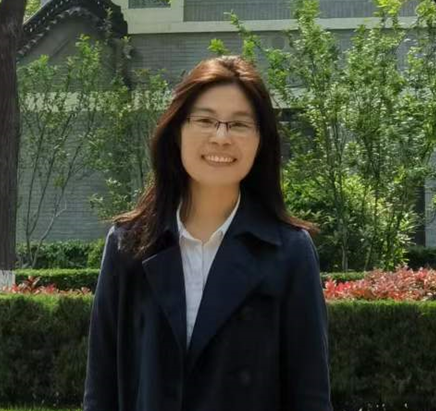Meet Dr. Lulu Jiang, New Faculty Member in the Department of Neuroscience

Dr. Jiang recently joined UVA from the Boston University. She graciously shared with us about her background as well as her research and interests. Please help us welcome Dr. Jiang and her lab to UVA!
(Brain Institute) Briefly describe your current research projects and interests.
I research neurodegenerative diseases, with a focus on Alzheimer's disease and related dementias. Currently our lab has three main projects: 1) We investigate RNA modifications and epitranscriptomic mechanisms in Alzheimer's and related dementias to discover new treatment targets and diagnostic markers. 2) We create 3D human brain neuron-glial assembloids/organoids to study disease heterogeneity and develop personalized treatments. 3) We explore neuron-glia interactions and neuroimmunological mechanisms in disease progression for comprehensive understanding of ADRD pathogenesis.
(BI) What do you find to be the most exciting and inspiring area of emerging neuroscience research?
The most exciting and inspiring area in emerging neuroscience or biomedical research is the recent progress in sequencing and omics techniques. These advancements offer a broader view of disease evolution, covering genomics, epigenetics, transcriptomics, proteomics, and post-translational modifications. In my research, we've uncovered a novel aspect of Alzheimer's disease - changes in RNA modifications. This discovery provides fresh insights into the disease's mechanisms at the epitranscriptomic level.
(BI) Why did you decide to come to UVA?
I chose to come to UVA because of its dynamic and diverse research atmosphere that encourages interdisciplinary collaboration. The UVA Brain Institute's commitment to fostering interdisciplinary neuroscience research teams aligned with my goals, and the resources and collaborative opportunities offered here are highly valuable. The natural beauty and outdoor amenities in the Charlottesville area, including the numerous parks and hiking trails, are an additional aspect I appreciate about being here.
(BI) What's the best part about your job?
The most rewarding aspect of my job is the opportunity to contribute to the advancement of our knowledge of the nervous system. Through research and mentoring aspiring neuroscientists, I can consistently work towards deepening and broadening our understanding in brain development and disease.
(BI) What led you to a career in neuroscience?
My MD training heightened my awareness of the critical need to find new approaches for intervening in neurodegenerative diseases promptly. I recognized the importance of addressing fundamental questions that hinder the development of disease-modifying treatments. Through my pursuit of basic science, I am dedicated to translating our research discoveries into practical applications that may ultimately uncover innovative treatment options.
(BI) What advice do you have for neuroscience trainees?
Neuroscience trainees, remember that life is boundless. Follow your career path with unwavering passion and dedication.
(BI) What's something new that you've learned recently (at work or outside of work)?
When I was a student in high school, I wasn't particularly fond of history classes. Instead, I gravitated towards fiction and harbored a fascination for the future. However, in recent years, I've come to realize that history holds valuable insights into the future. I've developed a newfound appreciation for history and have been thoroughly enjoying reading history books recently.
(BI) Where are you from originally?
I was born in Shandong Province, China, and grew up alongside my two elder brothers. Our parents were incredibly open-minded and encouraged us to explore our interests freely. As a child, I was exceptionally curious and nurtured dreams of becoming a scientist to unravel the mysteries of the natural world. One of my earliest experiments (around age 11) was to create a micro-ecosystem in a fish tank with grass and a mantis cocoon. After two weeks of incubation, the mantises hatched and filled my bedroom, much to my mother's surprise!
(BI) What's your favorite way to spend a day off?
My ideal way to spend a day off is by immersing myself in nature, either through hiking and practicing yoga or dedicating the day to creating oil or watercolor paintings. After a creative or active day, a peaceful night's sleep is the perfect conclusion.
(BI) What is a surefire way to make you laugh?
Dark humor or satirical comedy is a kind of surefire way to make me laugh. For example, I found great enjoyment in watching 'The Daily Show', especially during the COVID pandemic.
Dr. Jiang was hired as a part of the Grand Challenges Research Investments in Brain and Neuroscience. The Grand Challenges are a key component of the University's 2030 "Great & Good" Strategic Plan, a set of initiatives focused on bringing the University to preeminence in key focus areas while acting in service to society.